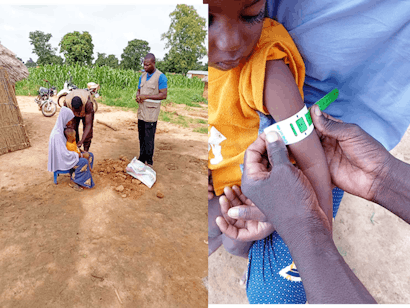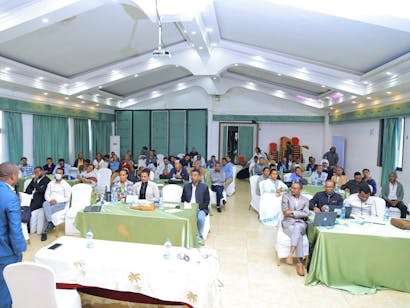The Impact of Nutrition on Health

Food and nutrition play a crucial role in achieving good health, along with ensuring food safety. This year’s World Health Day reminded us how important it is to stay healthy and protect our well-being.
The right to food is only truly realised when every individual, especially vulnerable children and women, can access and consume nutritious, safe, and adequate diets at all times. Nutritious diets are those that combine a variety of food groups (dietary diversification), each offering a unique array of nutrients crucial for maintaining good health.
The CAtalyzing Strengthened policy aCtion for heAlthy Diets and resiliencE (CASCADE) project employs a human rights-based approach to nutrition policy in Uganda. A study conducted by the project on the dietary intake of women and children in six sub-regions of Uganda – Acholi, Busoga, Lango, Karamoja, Tooro, and West Nile revealed worrying statistics. Only one in four women consumed five or more food groups, placing the majority at risk of malnutrition-related complications, especially during pregnancy and childbirth. Similarly, only about half of the children aged 6-23 months had a sufficiently varied diet, jeopardizing their growth and cognitive development.
No human being should suffer the consequences of inadequate food and nutrition. Everyone has a right to good food and nutrition, and the CASCADE project is dedicated to realizing this right in malnutrition-endemic regions of Uganda. Through the community score-card approach, we empower communities to hold duty bearers accountable, making a significant difference in the lives of those affected by malnutrition.
World Health Day; ‘My health, my right’
On this year’s World Health Day, CASCADE commemorates its collaborative efforts with the public and private sectors to promote the right to food and nutrition in Uganda. Through these collaborations, the program aims to enhance the implementation of the Uganda Nutrition Action Plan II (UNAP II), which serves as the primary policy focus. By leveraging multilayered advocacy initiatives, the program identifies and addresses potential constraints to policy implementation, highlighting factors such as gender and social norms that impede access to and consumption of healthy and nutritious foods, particularly for women of reproductive age and children. We aim to strengthen local capacity through the community scorecard approach, empowering communities to hold duty-bearers accountable.

Authors
Shirley Kansabe & Lukiya Birungi- CASCADE; Kyambogo University


